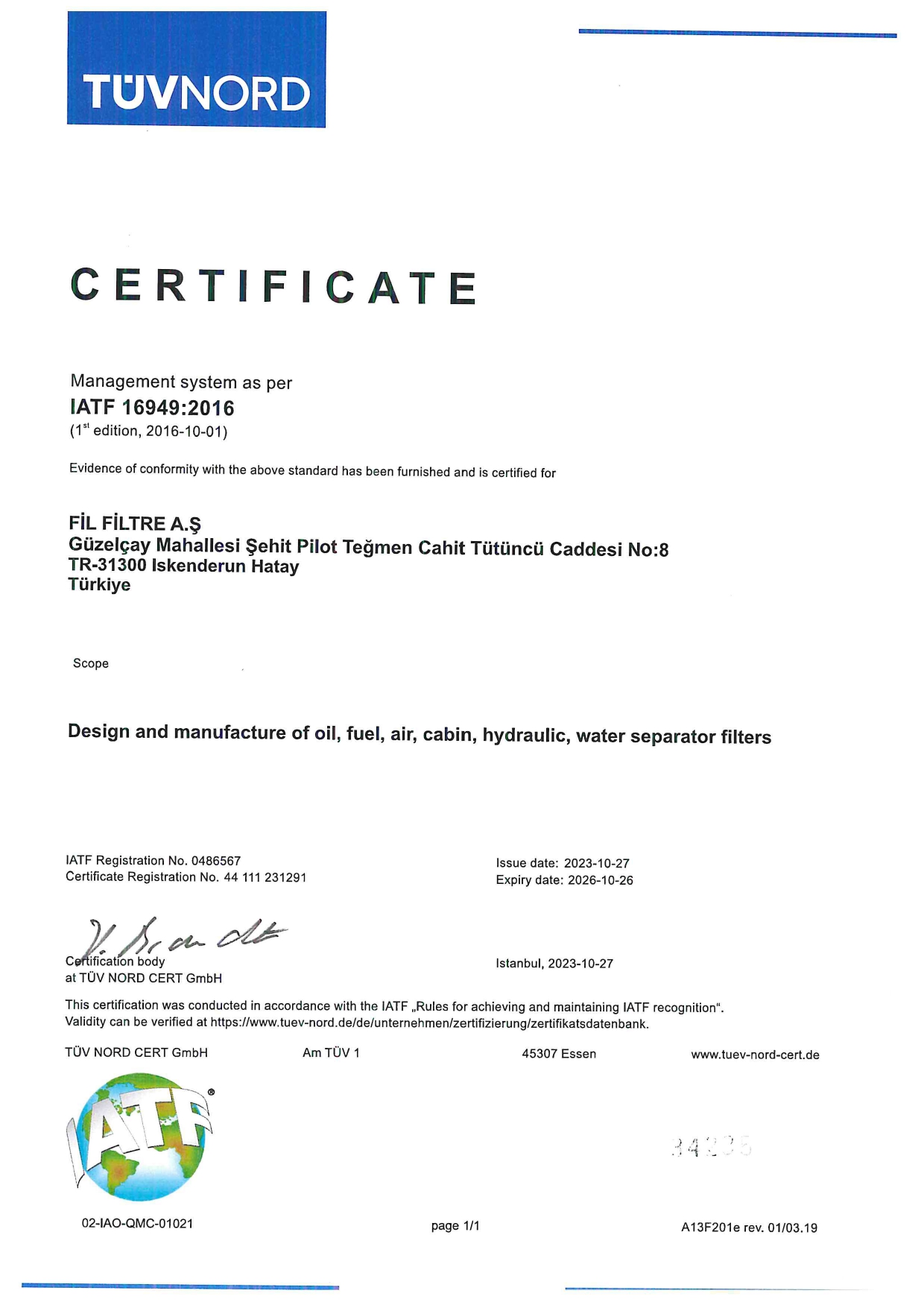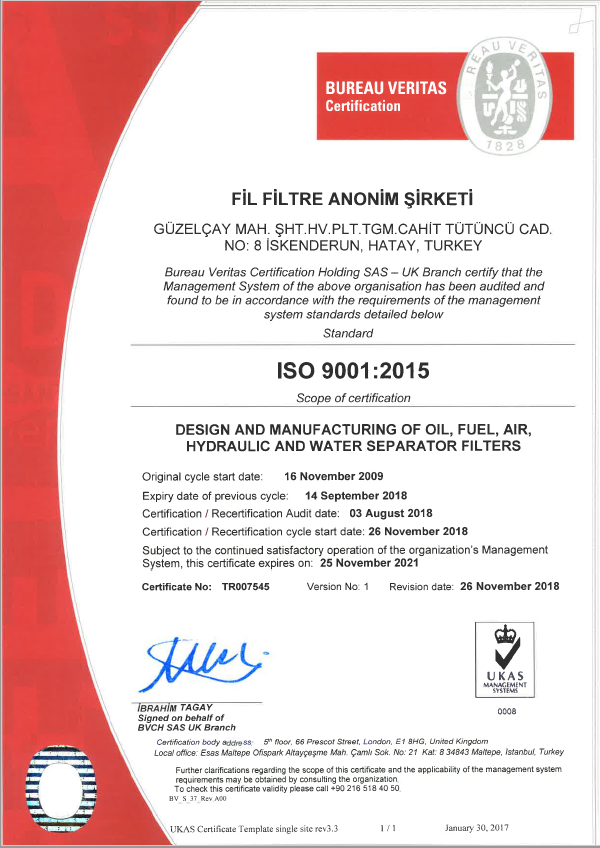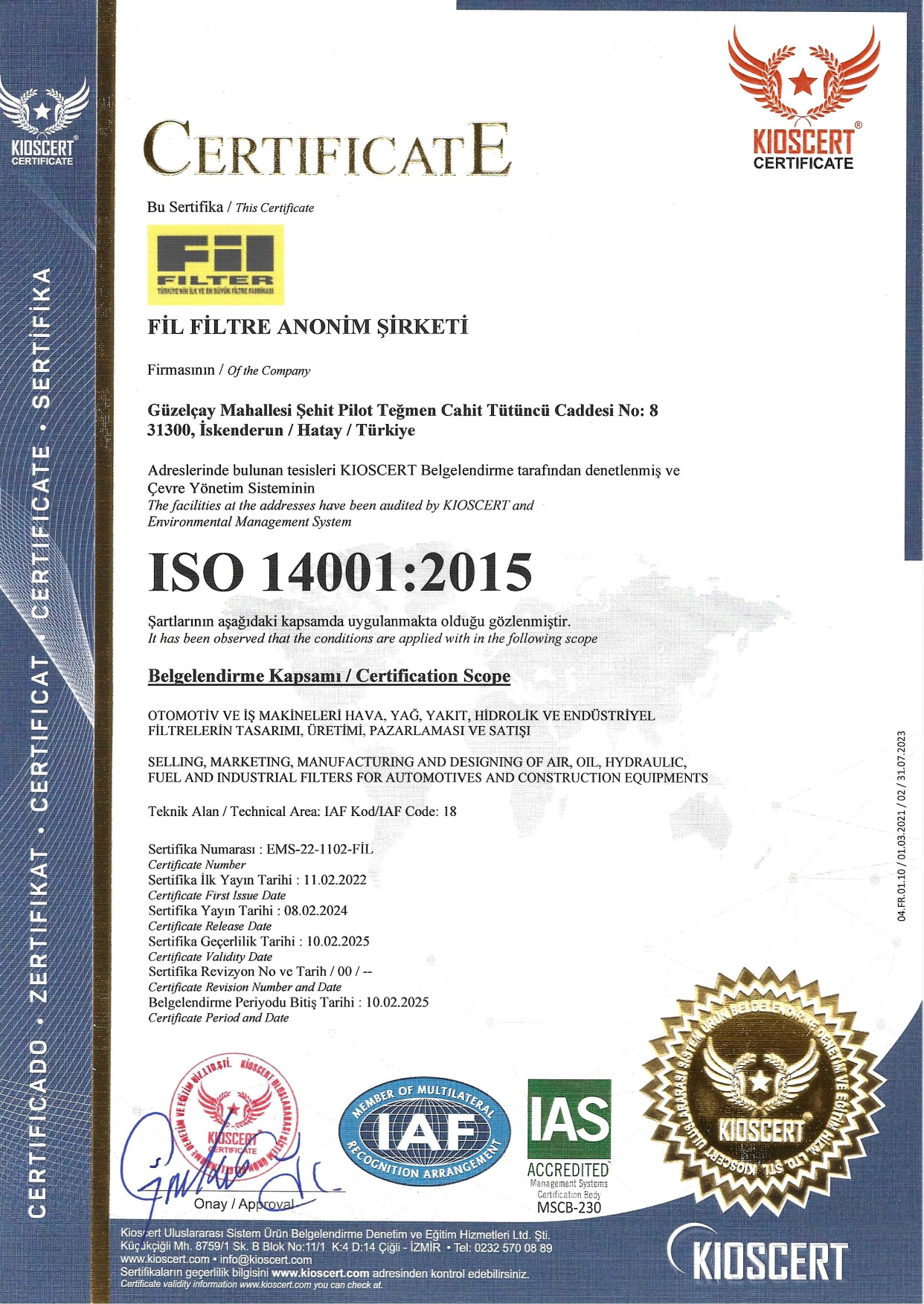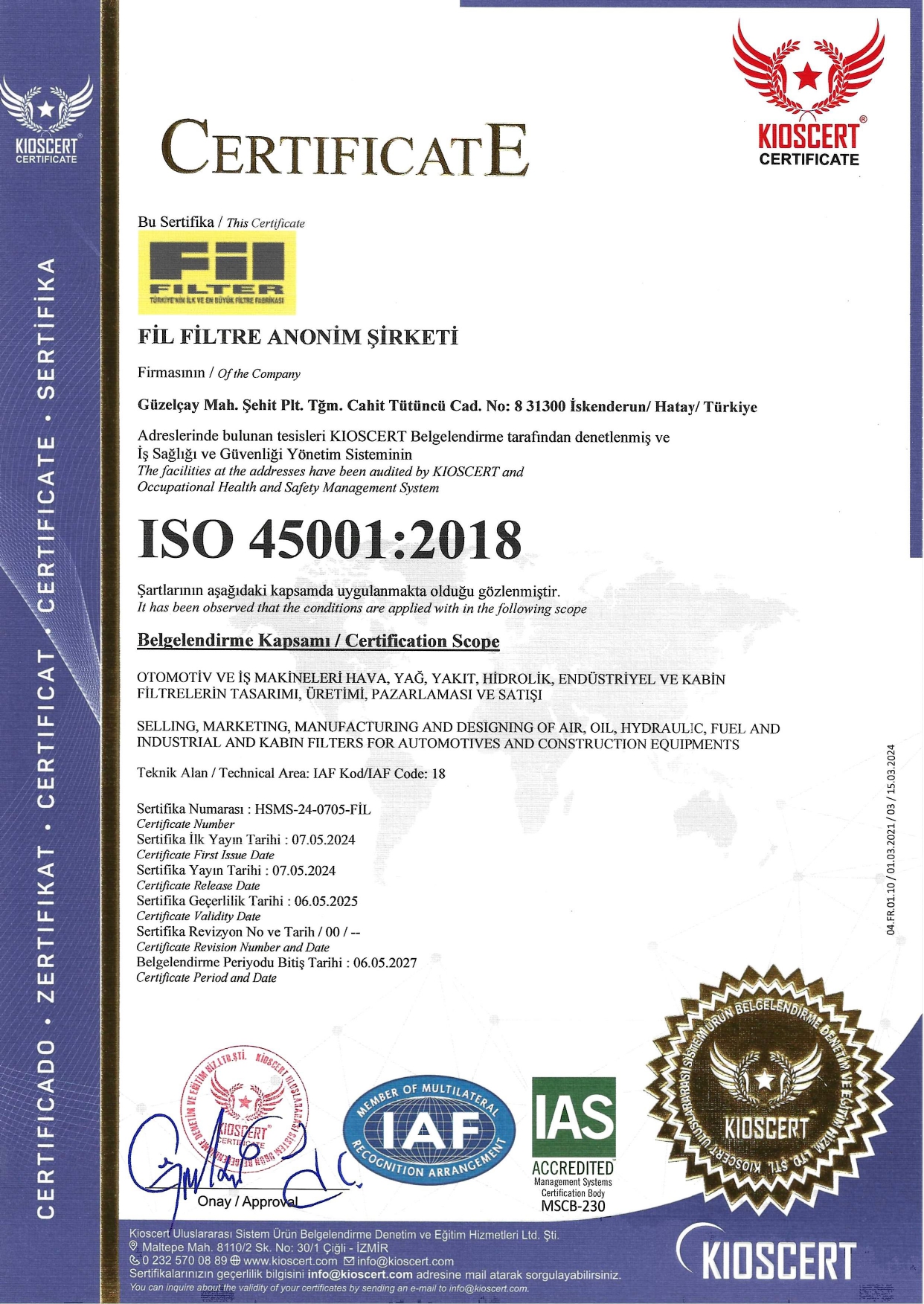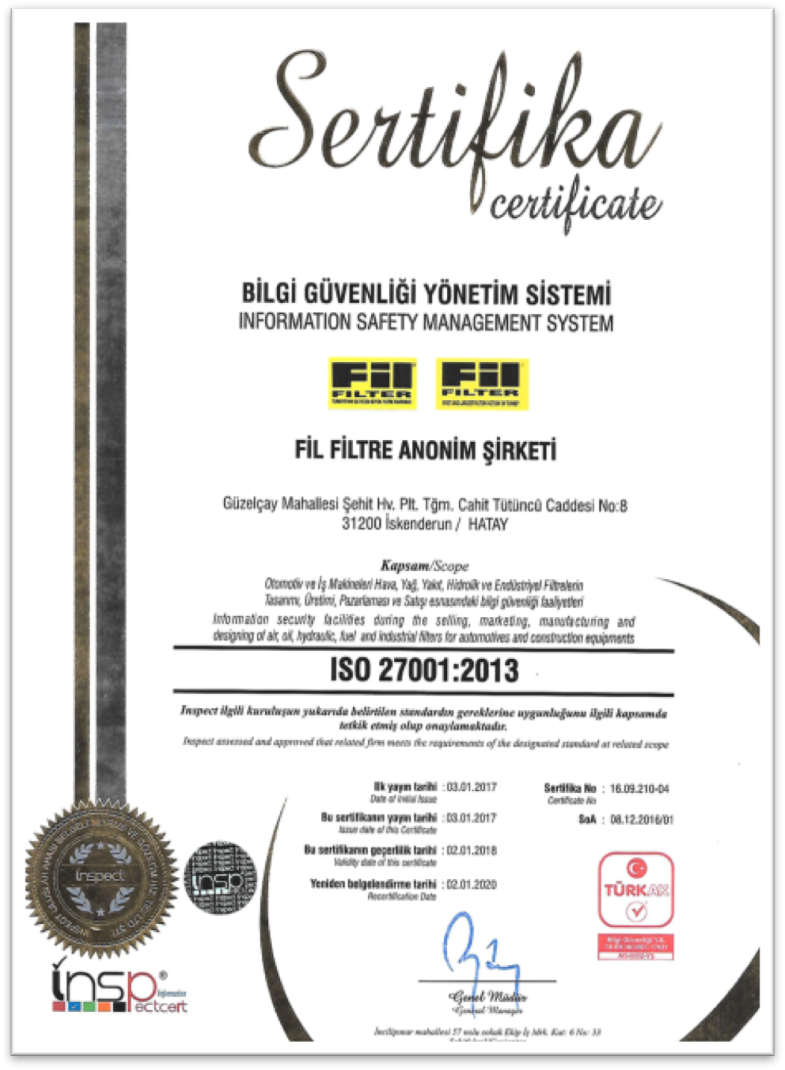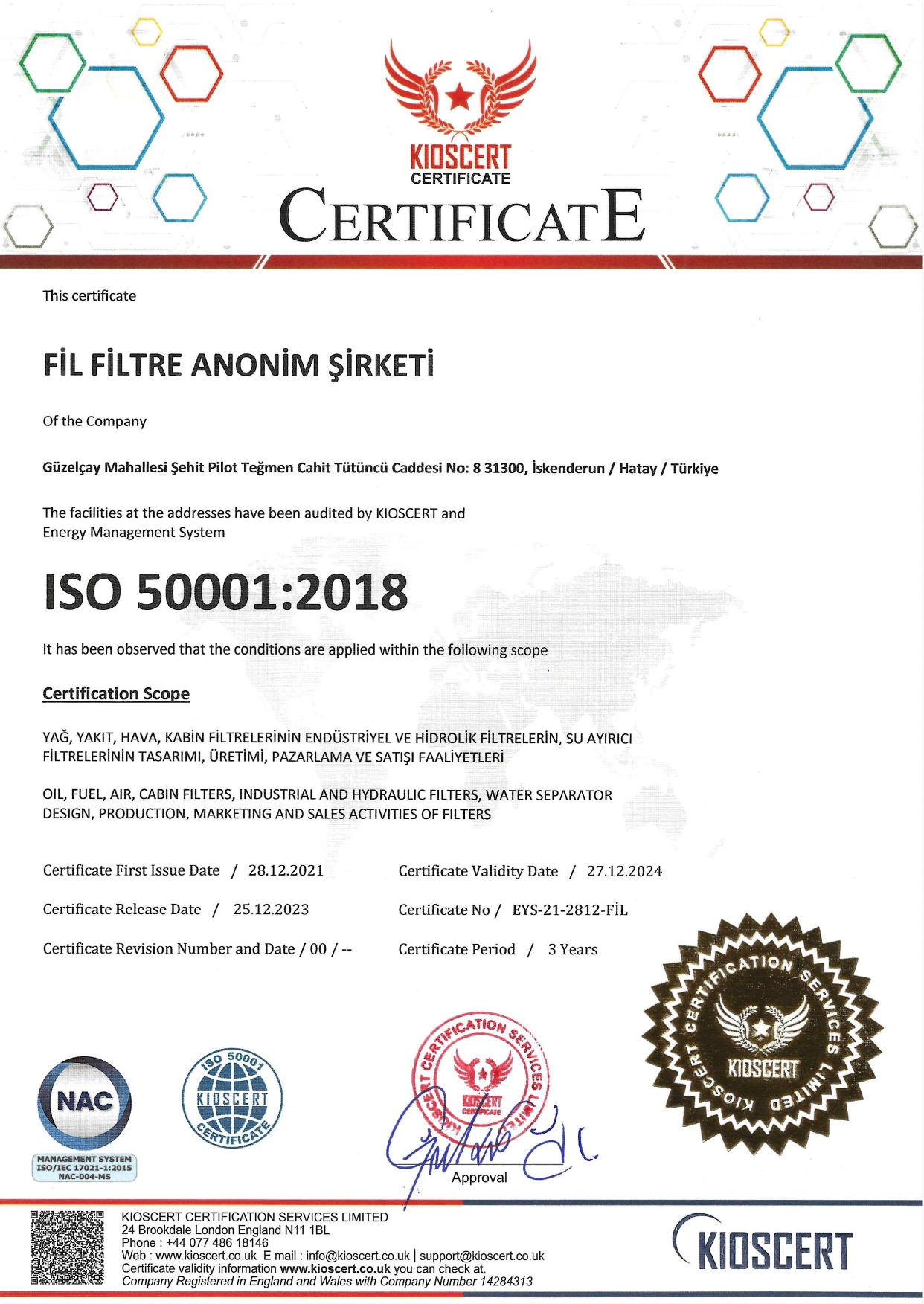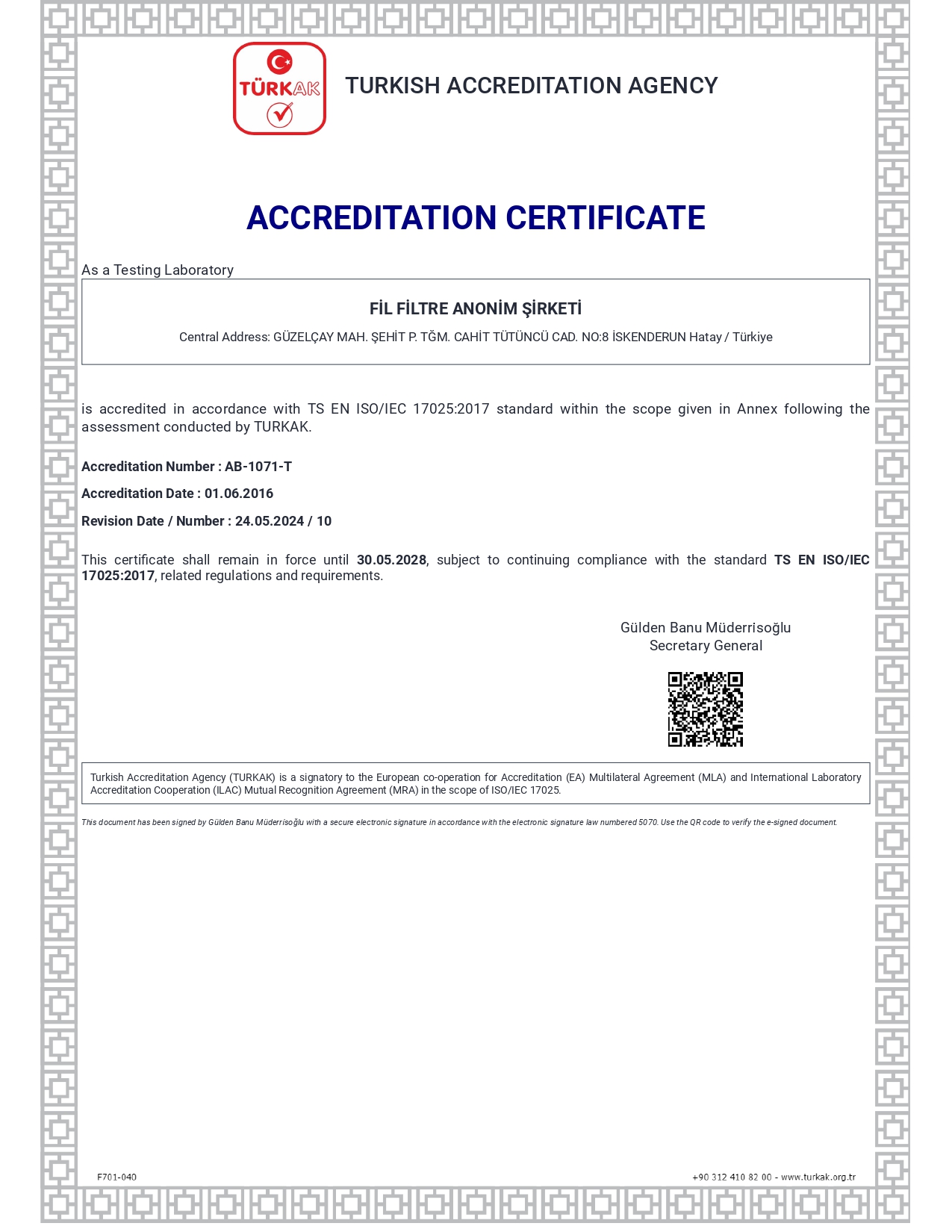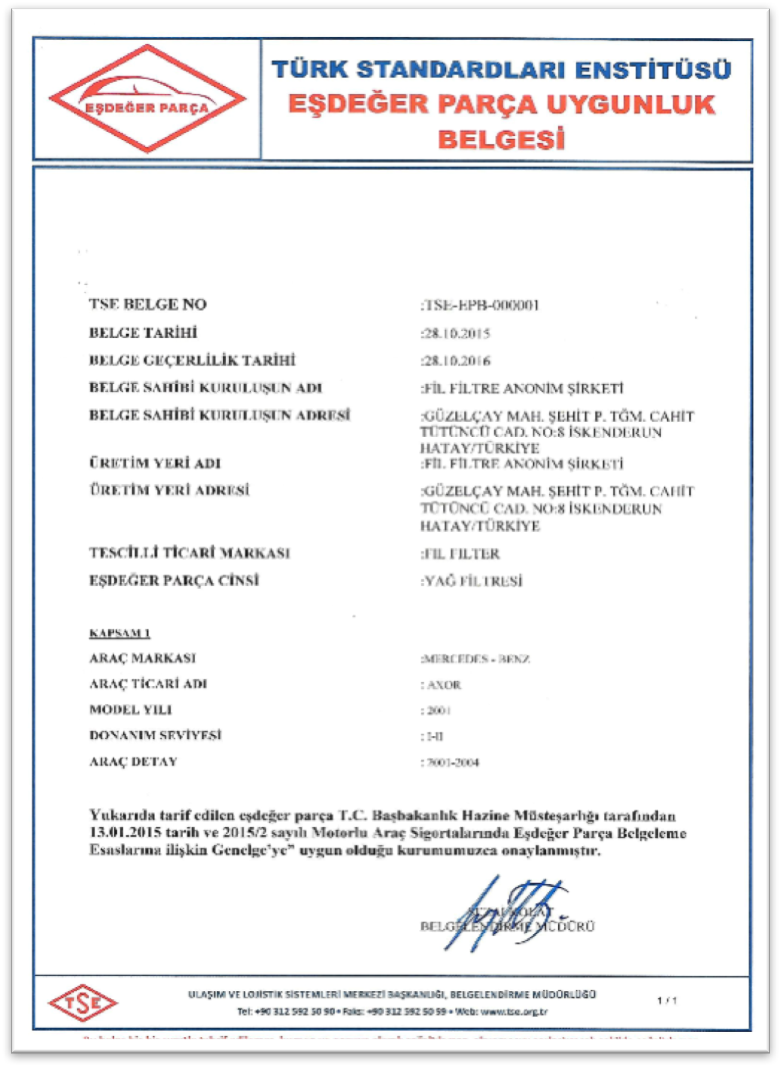The Importance of Oil Filtration
Today, the engines are designed to generate more power with low fuel consumption.
Lubrication and filtration have direct effects in the operation, performance and protection of the engine.
- The functions of oil during engine operation is as follows :
- Creation of slippery surface, sealing and prevention of abrasion between cylinder and piston
- Heat reduction
- Cleaning inner surfaces
- Carrying pollutants generated from combustion, wearing and abrasion to the filter
- Corrosion prevention
In case a quality oil filtration is not performed even if using a suitable quality oil, the pollution rate in the oil increases; the oil density increases, its circulation in the narrow channels becomes difficult, the circulation becomes obstructed, the temperature increases, its cleaning function turns into the pollutant function, the wearing increases and the engine parts wear off in a short period and compete their life, the traction drops, the engine starts burning oil at the same time and the exhaust release value increases.
Filtration Properties
The pressure in the oil filtration system is high, the sealing in the filters is very important. There may be more than one sealing element in the filter. The sealing elements used must be of suitable quality, resistant to extreme cold and extreme hot weathers, the filter must be produced in precision molds in technological processes and then offered for sale after passed through 100% test with test equipment.
EfficiencyEfficiency is that the filter used in the system can filter without creating resistance and can retain 99.80% of dirt within its expected life cycle.
Resistance to Pressure, Variable Heat and VibrationAs long as the engine is running, oil filters are exposed to variable heat and vibration conditions. The filter must be able to perform precisely its function without deforming under these conditions for the life of replacement.
By-pass ValveIf the viscosity of the oil increases in extreme cold and insufficient oil passage from the filter clogged due to dirtiness; Filter or by-pass circuits on the system are opened to allow oil passage. If the by-pass circuit is designed to be put in the filter, this circuit must perform its work by opening itself at the desired pressure. Otherwise, the system will remain without oil and cause engine components to malfunction to be replaced.
Resistance to External CorrosionThe external surface of the filter in spin-on filters made of sheet metal is exposed to direct environmental influences, either on the motor or on the motor; moisture, water, dirt, salty water (salting snow-covered roads). Under these conditions, the filter must be resistant to corrosion (rust). In addition, with our powder paint we apply, the resistance to external corrosion of our filters is increased.
Filter LifeShelf Life : It has a minimum shelf life of 5 years in its package without humidity, at -10 +40 C temperature range, without exposure to water and direct sunlight.
Life Cycle : During oil filtration, the filter retains impurities. This leads to clogging of the filter in time. Therefore, the maintenance and replacement period that the vehicle manufacturers have reported for the replacement of the filters must be observed. If the end-of-life, clogged filter is not replaced, the by-pass system will start circulating the dirty oil in the system, leading to the above-mentioned disadvantages.
- Poor Quality Oil Filtration and Negative Results
- Only price-oriented poor quality material
- Design based on insufficient knowledge
- Poor manufacturing conditions
- Releasing products to the market without testing due to lack of laboratory
- Attention; Do not risk your engine and the environment !
- Increase of engine heat
- Loss in engine performance
- Increase of engine noise
- Short or long-term damage to engine parts
- Job loss
- Increase of exhaust emission values

